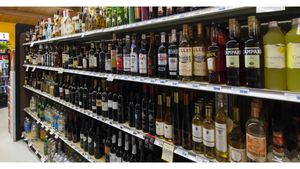Stores Weather Back-to-Back Storms
GREELY, Colo. After the worst wintry one-two punch in recent memory for Colorado, Rey Garza considers himself and his store extremely fortunate. The assistant manager of Jerry's Market here, 60 miles northeast of Denver, Garza said his store stayed open and well stocked largely due to the fact that their wholesaler, Affiliated Foods Midwest, is based out of Nebraska, and thus delivery trucks dodged
January 8, 2007
JEFF WELLS
GREELY, Colo. — After the worst wintry one-two punch in recent memory for Colorado, Rey Garza considers himself and his store extremely fortunate. The assistant manager of Jerry's Market here, 60 miles northeast of Denver, Garza said his store stayed open and well stocked largely due to the fact that their wholesaler, Affiliated Foods Midwest, is based out of Nebraska, and thus delivery trucks dodged the brunt of the snowfall.
Other retailers in Greeley, including Safeway and King Soopers, did not fare so well, he explained. Indeed, Jerry's Market proved the exception to the rule.
“We haven't closed down. We haven't been closed an hour. We've fought through it all and stayed open,” Garza said.
It's been a little more than a week since back-to-back wintry blasts slammed Colorado, dumping nearly 30 inches of snow on Denver altogether. Looking back, supermarket operators and analysts are digging out and recalling a turbulent period that brought good luck to a few, and grief to many.
“Stores in Denver are making do, but there are lots of empty shelves,” Mary Lou Chapman, president of the Rocky Mountain Food Industry Association, told SN last week. “A lot of distributors haven't been able to get product into their warehouses because the trucks from out of state haven't been able to get through.”
The scene was a common one: Panicked customers rushing in and grabbing up all the staple items, such as milk, eggs, bread, produce and beef. The degree to which stores were replenished fell to preparedness and, often, luck. Some were able to secure local distribution, or perhaps had delivery trucks able to break through. Others could only wait or close down.
Chris Howes, president of the Colorado Retail Council, said he visited a Safeway the Sunday before Christmas that had only received one shipment of perishables since that preceding Wednesday. This left the store lacking in many essential items.
“All of the chains are behind,” Trail Daugherty, spokesman for King Soopers, Denver, told The Denver Post last week. “The holiday is one of the biggest weekends of the year, then you put another storm in there, you will find outages.”
Sonja Tuitele, spokeswoman for Wild Oats, Boulder, Colo., said the company closed down two or three stores on the Thursday when the first storm hit. She explained that deliveries were missed or delayed throughout the area, but that Wild Oats fared well overall because stores were able to lean on their local suppliers, and because they were stocked up anyway for the holiday season. During the two-day period before the second snowstorm, she said sales were up 45%.
“Where we could, we worked with local distributors,” said Tuitele. “And because this was a holiday weekend, our ordering and deliveries were definitely beefed up relative to normal schedule.”
Sources said there is really no way to fully prepare for a massive storm like this. The best plan of action is to monitor the weather, try to stock up ahead of time and look to increase orders from local suppliers. Beyond that, it's a matter of keeping customers calm and happy.
Russell Hays, owner of Hays Market in Johnstown, Colo., said his customers mostly took things in stride. The store had to close on the Thursday before Christmas, when the storm first hit, and staple items ran out quickly before that. But, he explained, they eventually were replenished, and the store weathered the second storm well.
According to Hays, one perk that took the edge off of customers' panic response was a carryout service, in which designated employees carried groceries outside to waiting cars.
“My carryout employees were soaking wet by the end of the day,” Hays said. “But our customers appreciated that. They appreciated the fact that we were even open, since a lot of places just closed down. We're a local, small-town store, so we try and stay open as much as we can.”
About the Author
You May Also Like






